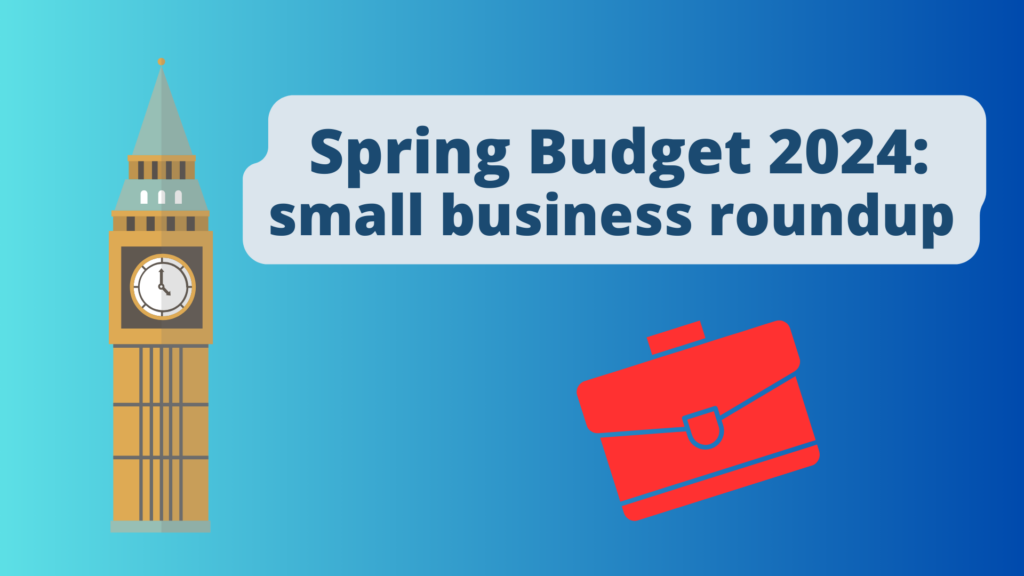On Wednesday 6 March 2024 Jeremy Hunt presented the Spring budget. He explained that while interest rates remain high to bring down inflation, his budget would help families manage the higher cost of living with permanent cuts in taxation. He described it as a ‘budget for long term growth.’

Mr Hunt announced that inflation is expected to fall below the government’s target of 2% in ‘just a few months’ time. Inflation in January 2024 was 4%.
Below, we explore the Budget developments that will affect small businesses.
Cuts to National Insurance
The main rate for employee national insurance will be cut from 10% to 8%. People earning £50,000 per year or more stand to save £754 annually as a result. For those earning £35K to £50K the saving is £449, and with incomes of £25k to £35K, people will save £249 per year.
Self-employed national insurance contributions will reduce from 8% to 6%, thought to mean an annual saving of £650 for 2 million people.
VAT threshold increase
The VAT registration threshold will increase from £85,000 to £90,000 from April 1 2024 – the first increase in seven years. Hunt said: ‘This will bring tens of thousands of businesses out of paying VAT altogether and encourage many more to invest and grow.’
Full expensing for leased assets
Hunt announced his intention to publish draft legislation for full expensing to apply to leased assets. This is an extension of the full expensing tax scheme for investing in new plants and equipment, announced in the Autumn 2023 budget.
This is likely to be a welcome development, as leasing is often a more viable strategy than purchasing for small businesses.
Freeze on fuel duty
Fuel duty will remain its current level for another year. The levy should rise in line with inflation – but this has not happened since 2011. A 5p cut to fuel duty, introduced in 2022, was due to end this month but has been extended.
Recovery Loan Scheme extension
Hunt vowed to provide £200 million of funding to extend the Recovery Loan Scheme as it transitions to the Growth Guarantee Scheme. This is expected to help 11,000 SMEs access much-needed finance.
Capital Gains Tax change
The government plans to raise more money by reducing the higher rate of property Capital Gains Tax from 28% to 24%. Hunt is also abolishing multiple dwellings tax relief, which previously reduced stamp duty liability when buying more than one home in a single transaction.
Holiday lettings tax relief to end
In response to lobbying from MPs representing coastal towns, the tax benefits of running a furnished holiday let business will be abolished.
Increased maximum income for Child Benefit
Hunt says 500,00 families will gain almost £1,300 from an increase to the high income threshold for Child Benefit. The threshold will go up from £50,000 to £60,000.
The tapering limit will increase to £80,000 from the current £60,000.
There are also plans to change how child benefit is paid, by applying the threshold to households rather than individuals.
Childcare
Free childcare hours for parents of children aged over nine months will continue for the next two years. Hunt says this will allow an extra 60,000 parents enter the workforce in the next four years.
Want to explore in more detail what the latest rules will mean for you or your business? As leading small business accountants in the Lune Valley we’re happy to advise. Get in touch with us today.

